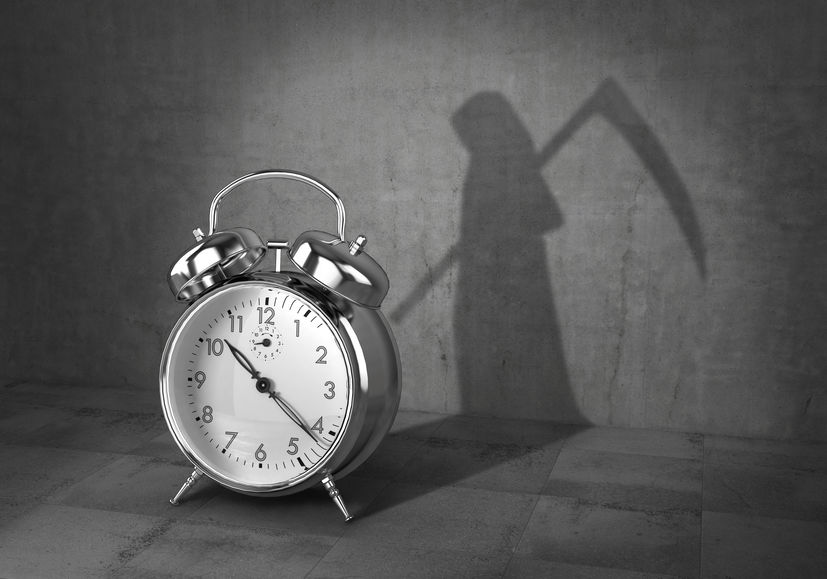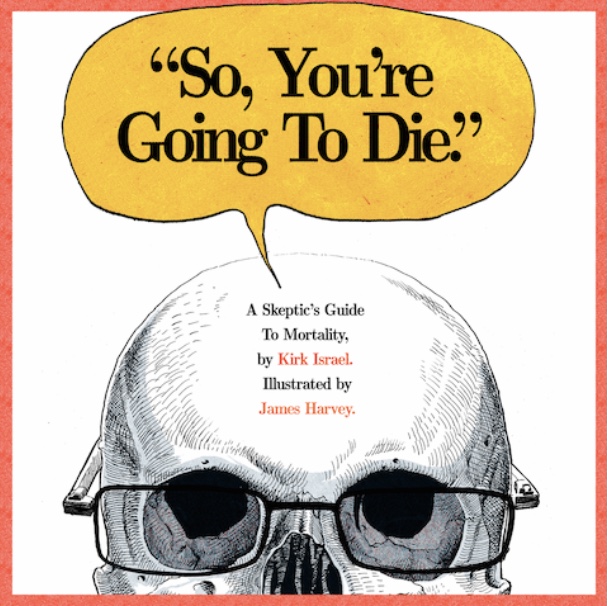By Polina Pallieraki,
The human brain is capable of assimilating and internalizing an innumerable amount of information and knowledge. Despite its multiple abilities, our mind cannot conceive of death as a fact. It probably exists in a corner of the unconscious, as a concept that seems foreign and inaccessible. How everyone perceives this concept is determined by their personal experiences and worldview.
Public opinion is negatively biased and fearful towards the end of life. But, is there a real reason why our mortal nature frightens us?
In our upbringing, topics of discussion about death are avoided. Even the various religions proclaim death as a continuation of life, referring to the “afterlife” (paradise, hell, reincarnations). Most of us are developed in an environment that either condemns or tries to ignore its mortal nature, a fact that is overturned when we lose a loved one. Then our “existential crisis” emerges and we part with a piece of our childhood carefree. But even then, in our daily lives, there are times when we tend to overlook a key factor in life: reversal. It is inextricably linked to death because the latter overturns our existence and is irreversible.
In 2021, we were tested a lot against the upheavals. We had to comply once again with the incarceration regime, we worried about the safety and effectiveness of vaccines, we tried to adapt to the new conditions of freedom. From spring to summer, our daily life changed drastically. Our fellow human beings lost their lives due to the pandemic and what was unexpected this summer was that larger areas of forest were burned compared to other years in many countries — especially Greece. Many of our fellow citizens were injured and forced to leave their permanent homes.

The word “overthrow” is usually associated with a negative sign, as it reminds us of our mortality. And yet, what value would our life have without it? If we were immortal, we would never feel threatened and everything would be safe. At first glance, it seems reassuring. At a closer look, however, it seems boring. All habits, even the most insignificant ones, would be colorless and odorless. We would not care about the future if we knew that our actions, our relationships, and our acquis have no expiration date. Awareness of our mortal nature defines any action as pleasure, recognizes the unexpected as an obstacle, and, above all, conveys the message that the issue is not to survive, but to live. Without the feeling of fear and danger, we would not be tempted by temptations or face challenges. Ensuring immortality would make us “living dead” after a while. The data ceases to be considered valuable. The same goes for the miracle of life. By expelling our fear of death, we would also expel our interest in earthly pleasures.
It is human to be confused when we encounter obstacles on our way, either small or large. Our endurance and limits are an integral part of our mortality. Most of the time, every obstacle creates new data in our course, which, in the long run, compose a more exciting path. To avoid misunderstandings, death is by no means welcome (except in some exceptions, where it works redemptively). We will always be hurt by the loss! But it is the cornerstone of our mobilization and escape from inaction. After all, is there greater happiness and prestige in this life than saying goodbye to the earthly world feeling complete?
If, in theory, there were an antidote to mortality, that would be the feeling of fullness. This is what makes it easier for us to overcome to some extent the fear of death and to be grateful for our mortal nature. The problem is that many times, we underestimate our mortality and, consequently, we are derailed in the search for our inner fulfillment. Unfortunately, from time to time, we seek self-realization from unorthodox sources or we do not set our priorities correctly. An insignificant percentage of people equate happiness with money and fame, and are possessed by workaholism. Also, there are people who due to their personal insecurities and triggered by the fear of loneliness are emotionally consumed in relationships that wear them down. Another portion of people are aware of their mortality to an excessive degree, are overwhelmed by the feeling of futility of everything, and stagnate in inactivity (depressive symptoms). In the storm of obligations, we neglect our mental/psychological health and perform the tasks as if operating in the automatic. Such an everyday life could be equivalent to a “dead life”.
Death equates us all. In front of him, we all stand vulnerable and ignorant of when he is going to make his appearance. We do not even have the ability to choose in advance the way, the place, and the people with whom we will spend our last moments. But, what we can regulate to a significant degree is the quality of our lives so that mortality is for us, not only quality, with which we coexist peacefully but, the driving force of our personal development!




